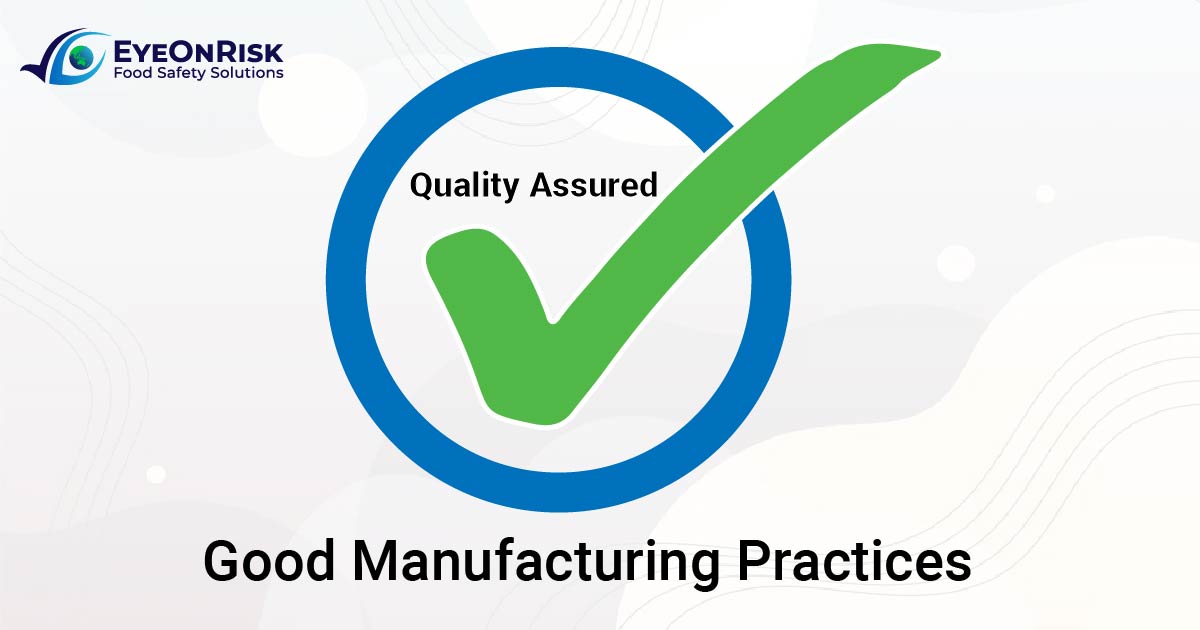What Are Good Manufacturing Practices (GMPs)?
26 Apr 2024

Good manufacturing practices (GMP) are a set of guidelines and regulations that aim to ensure that products are consistently produced and controlled according to quality standards. These guidelines cover all aspects of production, from raw materials to the final product, and are intended to prevent contamination, mix-ups, and other errors that could compromise the safety and effectiveness of products. GMP guidelines are designed to be flexible and allow for individualised approaches to manufacturing, considering the specific needs and circumstances of each product and manufacturing process. Regulatory bodies enforce GMP standards and apply them to various industries, including pharmaceuticals, food, and medical devices.
What are Good Manufacturing Practices (GMPs)?
Good manufacturing practices (GMPs) are needed to ensure the safety and effectiveness of products. These guidelines provide a framework for manufacturers to follow to produce products that meet established quality standards. By following GMP guidelines, manufacturers can reduce the risk of errors, contamination, and other issues that could compromise the safety and efficacy of their products. This is particularly important for products that are intended for use in medical treatment, as the safety and effectiveness of these products can have a direct impact on the health and well-being of consumers. Additionally, GMP standards help to ensure the integrity of the supply chain and can help to protect consumers from fraudulent or substandard products.
GMPs are typically defined by national or international organisations such as the World Health Organization (WHO), the Food and Agriculture Organization (FAO), or Codex Alimentarius. In the United States, GMPs are regulated by the Food and Drug Administration (FDA) under the Federal Food, Drug, and Cosmetic Act.
GMPs cover all aspects of food production, from agricultural practices to final product labelling and packaging. GMPs also address employee training and hygiene, facility design and maintenance, equipment cleaning and maintenance, and product tracing and recall procedures.
Implementing GMPs can be costly, but failure to do so can result in serious consequences such as product recalls, loss of market share, or legal liability. For this reason, many companies choose to certify their operations to recognised GMP standards such as ISO 22000 or BRC Global Standards for Food Safety.
What Is The Difference Between GMPs And FDA Regulations?
There are many similarities between FDA regulations and GMPs, as they are both designed to ensure the safety and quality of products. However, there are also some key differences. FDA regulations are mandatory, while GMPs are voluntary. This means that companies must comply with FDA regulations, but they can choose whether or not to follow GMPs. Additionally, FDA regulations cover all aspects of production, from raw materials to finished products, while GMPs only apply to the manufacturing process. Finally, FDA regulations are enforced by the government, while GMPs are typically enforced by third-party certification bodies.
Why Are GMPs Important?
GMPs are a set of guidelines that dictate the standards for the manufacturing, packaging, and labelling of food products. The FDA enforces these regulations to protect consumers from adulterated or misbranded foods. GMPs also help ensure the safety and quality of food products by establishing sanitary conditions and preventing cross-contamination.
To ensure compliance with GMPs, food manufacturers must have detailed written procedures in place for all aspects of their operation, from ingredient sourcing to shipping. They must also maintain strict records and perform regular self-inspections. Food manufacturers who fail to comply with GMPs can be subject to FDA enforcement action, including recalls, fines, and criminal prosecution.
Consumers should be aware that not all food products are subject to GMPs. For example, raw fruits and vegetables are not regulated by GMPs. However, processed foods such as canned goods or frozen dinners must meet GMP standards. When shopping for food, look for the FDA inspection seal on product labels to ensure the product has been manufactured in accordance with GMPs.
What Are The Benefits Of GMPs?
There are many benefits of adhering to Good Manufacturing Practices, or GMPs. Most importantly, GMPs help to ensure the safety and quality of products. By following GMP guidelines, manufacturers can help to prevent cross-contamination, errors in production, and other potential hazards.
Adhering to GMPs can also benefit businesses in terms of liability and reputation. If a company is found to be in violation of GMP standards, it may face legal penalties or be subject to recalls. In some cases, companies may even lose their licence to operate. Therefore, it is in a company’s best interest to adhere to GMP standards to protect its business.
Finally, customers also benefit from companies following GMPs. When products are made in accordance with GMP standards, customers can be confident that they are receiving a safe and high-quality product.
Conclusion
Good Manufacturing Practices are a set of guidelines that govern quality standards. These guidelines are designed to ensure the quality and safety of these products. Adhering to GMP standards is essential for any company that wants to produce high-quality products that meet the needs of patients and consumers.